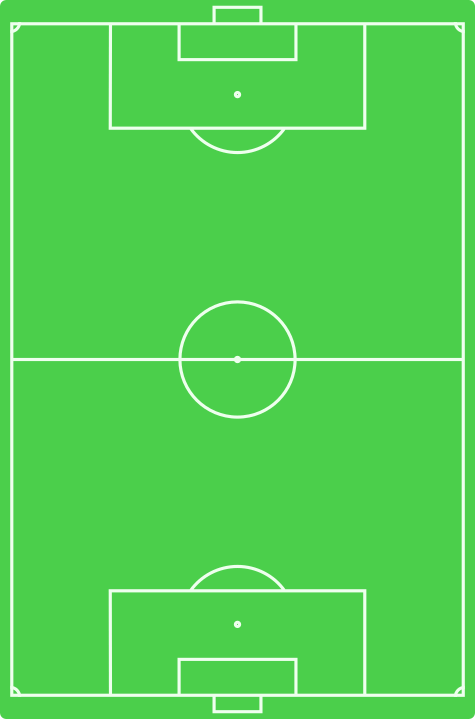FK Žalgiris
 | |||
| Full name | Vilniaus futbolo klubas "Žalgiris"[1] | ||
|---|---|---|---|
| Nickname(s) | Žaliai Balti (The Green Whites) | ||
| Founded | 1947 | ||
| Ground | LFF Stadium | ||
| Capacity | 5,067 | ||
| Coordinates | 54°40′07″N 25°17′39″E / 54.66861°N 25.29417°ECoordinates: 54°40′07″N 25°17′39″E / 54.66861°N 25.29417°E | ||
| Chairman | Vilma Venslovaitienė | ||
| Head coach | Valdas Urbonas[2] | ||
| League | A Lyga | ||
| 2017 | A Lyga, 2nd | ||
| Website | Club website | ||
|
| |||
Futbolo klubas Žalgiris, commonly known as FK Žalgiris, Žalgiris Vilnius or simply Žalgiris is a Lithuanian professional football club based in Vilnius. The club competes in the A lyga, the top flight of Lithuanian football. The club was founded as Dinamo in 1947. The club's name commemorates the victorious Battle of Žalgiris (Battle of Grunwald) (both names: Žalgiris and Grunwald are translated as "green grove"). Žalgiris has featured many Lithuanian football legends during their history, including Arminas Narbekovas, Valdas Ivanauskas, Edgaras Jankauskas and Deividas Šemberas. They have won the Lithuanian Championship 7 times, the Lithuanian Football Cup 11 times and the Lithuanian Supercup 6 times.
The team's colours are green and white. The club plays at LFF stadium in Vilnius which has a capacity of 5,067.
History
Foundation and Soviet period
The first incarnation of the club played in 1946 as a national team of Lithuanian Soviet Socialist Republic when it competed in USSR Group III Zone 4 championship and it was one of the clubs which represented one of the Soviet republics. The club consisted of Spartakas Kaunas and Dinamo Kaunas players. Their first match was against Stroitel Moscow which ended 1–1 and they were managed by French coach Emil Pastor. That year they finished in fourth place in RSFSR Western Zone championship.[3]
The club is thought to have been founded in 1947 when it was moved from Kaunas to Vilnius and its name was changed to Dinamo Vilnius.[4] First official match of the formed club was played on 16 May 1947 against Lokomotiv Moscow, who managed to defeat local team 1–2.[5] Steponas Petraitis scored the first official goal for the club that day, beating goalkeeper from a penalty spot in 44th minute.[6] The next year club changed its name to Spartakas Vilnius and used this name until the end of 1961 season. In 1962, they changed their name to Žalgiris.
Žalgiris competed in Soviet Union football league system from 1947 to 1989. Team achieved its first promotion to the top tier in 1952, but came last next season.[7]
Before the start of the 1983 season in Soviet Top League, players initiative group demanded to resignation of coach Benjaminas Zelkevičius, players wish was satisfied, Algimantas Liubinskas became of trainer. Start was cautious. A similar result 0–0 has played in Tashkent with Pakhtakor, in Leningrad with Zenit, in Vilnius with Dynamo. In fourth match in season against Neftchi in Baku, Gražulis scored goal on 1–0 and brought victory. There were victories and failures, but Žalgiris became the winners of the first round. In first place Žalgiris stayed short, Nevertheless, final fifth place is the highest achievement of Lithuanian football on this time and give a great hope for future. Arminas Narbekovas, Romas Mažeikis, and Vladimiras Buzmakovas succeeded in the team in that season.[8]
In 1984 Soviet Top League season, Žalgiris finished on 9 place among 18 teams, but rejoiced victories against FC Dynamo Kyiv (1–0 at home), FC Spartak Moscow (twice 2–1), FC Dynamo Moscow (1–0 at home, 2–1 in Moscow). and Valdas Ivanauskas debuted in first team.
The club's most successful season was in 1987 when they finished third in the Soviet Top League and qualified for 1988–89 UEFA Cup where they played against Austria Wien, while also for the first time in club's history reaching semi–finals of the 1987–88 Soviet Cup (after being eliminated in quarter-finals of the 1955, 1959–60, 1964 campaigns) and 1987 USSR Federation Cup. The club represented the Soviet Union at 1987 Summer Universiade which they won by defeating the South Korean team. In the following season they finished fifth and again qualified for UEFA Cup where they faced IFK Göteborg in the first round and Red Star Belgrade in the second. In 1988, several of Žalgiris players were decorated with medals in the USSR national teams: Vyacheslav Sukristov received silver medal of the UEFA Euro 1988, and Arminas Narbekovas and Arvydas Janonis brought back gold medals from the 1988 Summer Olympics. In 1989 the club finished in fourth place and for third year in a row qualified for UEFA Cup. They managed to play one game in 1990 at the start of the season before withdrawing due to re-establishment of Lithuania's independence and joined the Baltic League which consisted of clubs from Lithuania, Latvia and Estonia. Therefore, they lost their place in UEFA Cup, which was taken by Chornomorets Odesa.[9]
1990–2007
Following Lithuania‘s declaration of independence in 11 March 1990, Žalgiris has left Soviet Top League with immediate effect. Despite most of the top players including Arminas Narbekovas, Valdas Ivanauskas, Igoris Pankratjevas, Vyacheslav Sukristov and Robertas Fridrikas leaving the club Žalgiris remained favorites to clinch Lithuanian title and won A lyga regular season having lost just once in 32 games. The championship however was decided by the knock-out competition where Žalgiris lost in the semifinals to Ekranas Panevėžys and only managed to take a third place.
Green and whites took their first A lyga title the following season when they won the regular season, took the revenge against Ekranas beating them in the semifinals and won the final against Lietuvos Makabi Vilnius 3–1 with Ričardas Zdančius scoring a hat-trick. Žalgiris completed the double later that year by winning the Lithuanian cup.
The 1991 season was followed by two significant changes in league format: the knock-out competition was removed and league was reorganized to be played from autumn till spring. Žalgiris saw off the challenge from Panerys Vilnius to defend their title by a single point. There were no double in this year however: Lietuvos Makabi took revenge for their defeat in last season’s league final and beat Žalgiris in the final 1–0. In the summer of 1992, Žalgiris made their debut in the UEFA Champions League. Europe's elite proved to be merciless: PSV Eindhoven hammered Žalgiris 8–0 on aggregate in the first round.
In 1992–93 season things went the other way round in national competitions: having lost the national title to FK Ekranas by three points Žalgiris reclaimed the cup, beating Sirijus Klaipėda 1–0 in the final courtesy of the extra time goal by Aurelijus Skarbalius. Similar story happened in 1993–94 season when ROMAR Mažeikiai narrowly beat Vilnius' side to the title while Žalgiris defended the cup by beating FK Ekranas 4–2 in the final. Darius Maciulevičius was the hero of that day scoring a hat-trick and Aidas Preikšaitis added another from the penalty spot.
1994–95 season delivered a double blow for the side from the capital. Žalgiris and Inkaras Kaunas finished the league locked on points at the top and extra match on neutral ground was set to be played. Inkaras Kaunas beat Žalgiris 2–0 in Panevėžys and four days later the same two teams met in Klaipėda for cup final. Inkaras once again came out better off as former Žalgiris man Eimantas Poderis scored twice in a 2–1 victory for Kaunas’ side. 1995–96 season didn’t bring silverware either: free scoring Žalgiris side racked up 106 goals in just 28 games in the league yet could only take a third place, six points behind champions Inkaras Kaunas. On this time Edgaras Jankauskas was top scorer A Lyga with 25 goals. He was later sold to CSKA Moscow.
Things didn’t go well in the cup as well as Vilnius' side lost to Kareda Šiauliai in the semifinals and failed to advance to the final for the first time in six years. Žalgiris reclaimed the cup in 1996–97 season as Donatas Vencevičius’ penalty was enough to see off Inkaras in the final but had to settle for second in the league as Kareda coasted to the title with 8 points margin. Green and whites mounted a stronger challenge in 1997–98 yet Kareda proved its success has been no fluke by defending their title.
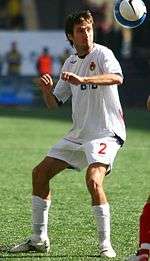
The elusive title finally came in 1998–99 season, the last one to be played from autumn till spring. Defense was the key to success as Žalgiris conceded just 8 goals in 23 games and did not lose a single league match that season. Things were different in the cup as Kareda dismantled Žalgiris 7–0 on aggregate in the semifinals. The league title allowed Žalgiris to have another try in the UEFA Champions League and this time Vilnius' side eliminated Armenian champions Araks Ararat before succumbing to a defeat to last season’s semifinalists Dynamo Kiev in the second round.
With a turn of the century a new force rose in Lithuanian football: FBK Kaunas. Under the name of Žalgiris Kaunas they won the transitional shortened league season in 1999 and then backed it up by consecutive titles in 2000, 2001, 2002, 2003 and 2004. Žalgiris on the other hand went into decline and cup final win in 2003 proved to be the sole piece of silverware for the club in the 2000s. In the league Žalgiris started to struggle as well. While in 1999 and 2000 green and whites finished second, 2001 saw them dropping to third, 2002 to fourth and 2005 to the recently unimaginable lows of eighth. Žalgiris was not even the strongest team in the capital as newcomers Vėtra and FC Vilnius were clearly having better time on the pitch.
Despite a constant presence in European competitions the results there were rarely encouraging with the aggregate defeats like 2–7 to Ruch Chorzow and 0–7 to Maccabi Tel Aviv. Budapest Honved and Portadown were the only teams eliminated by Žalgiris between 2000 and 2004. 2005 UEFA Intertoto Cup thus stood out as a major success as green and whites went past three teams – Lisburn Distillery, Dinaburg and Egaleo, before being eliminated by CFR Cluj.
2008–present
The struggles of the noughties culminated in 2008. The league finish of fifth could have been seen as adequate for the time (20 points gap to fourth placed Sūduva was harder to take) but as country's economy braced for the inevitable crisis, expenditures were cut and uncertainty rose Žalgiris was dealt a big blow when club owner Vadim Kastujev was arrested in Moscow. Striped of funds club survived till the end of the season but failed to meet licensing requirements for top flight competition in 2009. With old club's future very much in doubt fans of Žalgiris founded a new club called VMFD Žalgiris which had the same players and staff, and following unsuccessful application for A lyga license entered second division.
A year outside of top flight proved to be difficult. Žalgiris finished sixth in seven team league and were eliminated from the cup in the Round of 16 by Sakuona Plikiai, a team from a town with a population of just 600. Despite this bleak performance the club received promotion to A lyga as the number of teams in top flight was increased and some other clubs refused to join in mainly because of financial burden. Žalgiris finished 2010 season in the third place, their highest since 2001.
The fortunes of Žalgiris went all uphill from there. With FBK Kaunas in complete turmoil and Vėtra bankrupt Ekranas for several years became the undisputed superpower of Lithuanian football. Green and whites were closing in however: Žalgiris took second in 2011, eight points adrift, and closed the gap to a single point a year later. Moreover, in 2012 Vilnius side finally ended their nine-year trophy drought and won Lithuanian cup, beating Ekranas on penalties following a 0–0 draw. The same season saw Žalgiris returning to European competitions but their UEFA Europa League campaign proved to be short: following 1–1 draw in Vilnius, Admira Wacker Modling hammered Žalgiris 5–1 in the second leg of the second qualifying round.
Žalgiris were considered to be strong favorites for the title before the 2013 season and for much of the season it looked that they would cruise to the championship. Žalgiris had eleven points lead over second placed Atlantas with five games remaining but four draws in the row followed and before the final match of the season the gap at the top was reduced to three points. In final match out of form Žalgiris proved to be no match for Sūduva and for much of the day prospect of season decider on neutral venue looked very likely. However, in tense atmosphere it was Atlantas who ultimately let it slip as they could only draw the game with Banga Gargždai and Žalgiris celebrated their first title in fourteen years. Victory in Cup final against Šiauliai meant that the double was won–the first since 1991. The great year was backed up by successful performance in UEFA Europa League where Vilnius' side eliminated St. Patrick’s Athletic, Pyunik Yerevan and Lech Poznan before losing out to Red Bull Salzburg.
Defending the title in 2014 proved to be far more routine task. Žalgiris finished the season 18 points clear of second placed Kruoja Pakruojis (the largest winning margin in the league since 2006) and also claimed the cup for the third time in the row, beating Banga Gargždai 2–1 in the final. The club made return to UEFA Champions League after fourteen-year absence yet it didn’t bring much joy as Dinamo Zagreb beat Žalgiris 4–0 on aggregate in the second qualifying round.
In May 2015 Žalgiris won Lithuanian cup for a record fourth time in the row, beating Atlantas 2–0 in the final. UEFA Champions League campaign was again limited to just two games as Malmo won the return leg in Vilnius 1–0 after goalless first match in Sweden. Žalgiris finished the season top of the league, ten points clear of second placed Trakai thus claiming third successive title.
In 2016 season Žalgiris continued its dominance in Lithuanian football in 2016 with fourth consecutive league title and, remarkably, two cup wins. LFF Cup was rescheduled to be played from spring till autumn that year and therefore two editions of the cup have been played that year. Žalgiris won the first final in May with 1–0 extra time win over Trakai and backed it up with 2–0 final win over Sūduva in September. European experience proved to heartbreaking as following a goalless draw in the first leg in Vilnius Žalgiris was a whisker away from eliminating Astana only to concede an injury time goal to lose the game 2–1.
In 2017 season Žalgiris failed to progress beyond the Champions League second qualifying round once again in 2017 when impressive first leg win over Ludogorets Razgrad and early goal by Serge Nyuiadzi in the second leg were completely undone by four straight goals by Bulgarian side. In September Žalgiris reached seventh consecutive cup final this year yet following six straight wins in earlier finals had to taste defeat this time around. Stumbras side, appearing in their first major final caused an upset by scoring the only goal in the final and ending Žalgiris’ dominance in the competition. Further problems were highlighted by failure to defend league title. Žalgiris were top of the table until October but late march by Sūduva - which won 13 out of final 14 games - saw side from Marijampolė winning their first ever championship.
Name history
| Name history | |
| Year | Name |
| 1947 | Dinamo Vilnius |
| 1948 | Spartakas Vilnius |
| 1962 | Žalgiris Vilnius |
| 1993 | Žalgiris-EBSW Vilnius |
| 1995 | Žalgiris Vilnius |
| 2009 | VMFD Žalgiris |
| 2015 | Žalgiris Vilnius |
Stadium
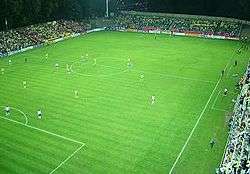
For the majority of the time Žalgiris played in Žalgiris Stadium. This stadium was the biggest in Lithuania and had a capacity of 15,029.
Since 2011 Žalgiris plays in LFF Stadium (Lithuanian Football Federation stadium). This arena, formerly known as Vėtra Stadium, was built in 2004 and holds up 5,500 people.
After the bankruptcy of FK Vėtra football club, LFF took control of the stadium.
It is situated 400 metres up the Aušros vartų and Liepkalnio streets from the Gate of Dawn (Lithuanian: Aušros vartai)
Sponsors
| Sponsors |
| Kit manufacturer |
Kit
From the establishment of the club, Žalgiris colours was blue, or red, sometimes was orange. In the 1980s became green and white kits and green/white tradition. Therefore, the kit is green and white striped jersey and green/white variation of shorts and socks. In the past there have also been checkered green-white jersey designs. Away kits are usually plain white or green.
|
1988
|
1991
|
1996
|
2016 home
|
2016 away
|
2017 home
|
2017 away
|
Goalkeeper`s kit 2018 Home
|
Kit manufacturers and shirt sponsors
| Period | Kit manufacturer | Shirt sponsor |
|---|---|---|
| 1947–1972 | — | — |
| 1973–1979 | unknown | |
| 1980–1987 | Adidas | — |
| 1988–1989 | DANIELI | |
| 1990–1991 | unknown | |
| 1992 | Umbro | FINPLAN |
| 1993 | unknown | |
| 1994 | Adidas | EBSW |
| 1995 | Umbro | |
| 1996 | Diadora | |
| 1997 | — | |
| 1998 | — | |
| 1999 | Adidas | |
| 2000 | unknown | |
| 2001–2002 | Hummel | Ūkio Bankas |
| 2003–2005 | Adidas | — |
| 2006–2009 | Hummel | |
| 2010–2012 | Unibet | |
| 2013–2015 | Kappa[11] | Top Sport |
| 2016–present | Nike[12] | |
Logos
.png) 1947–1962
1947–1962.png) 1962–1988
1962–1988 1989–2008
1989–2008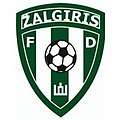 2009–2012
2009–2012 2012–
2012–
Supporters
The official club of Žalgiris' fans is named Pietų IV. The members of Pietų IV support the team during every game in Lithuania and in Europe and never leave the team alone. This community is united by their love and loyalty to Žalgiris. Pietų IV is the leader of organised supporting in Baltic states.
The establishment date of Pietų IV is considered October 1985. Since that time fans have been supporting the team while singing, waving flags and creating impressive choreography. Fans helped Žalgiris to survive the financial crisis. During hard periods they organized various events and collected enough money to remain. Pietų IV and the managers of the club together are the founders of Žalgiris Vilnius.
Žalgiris supporters maintain friendly relations with fans of Atlantas and Utenis. Internationally, there are close historical ties with supporters of Dynamo Kyiv,[13][14] Karpaty Lviv and Dinamo Tbilisi.[15]
Achievements
Domestic
- Champions - 7

- Runners-up - 9

- 3rd place - 4

- Winners - 12

- Finalists - 5

- 1990, 1992, 1995, 2000, 2001, 2017
- Winners - 6

- 2003, 2013, 2014, 2015, 2016, 2017
- 3rd place - 1

- Champions - 1

- 1982
- Runners-up - 3

- 1952, 1954, 1966
- 3rd place - 1

- 1950
- Runners-up - 1

- 1977
International
- Champions - 1

- Champions - 1

- 1987
- Semi-finalists - 1
Individual player awards
Two players have won the Seoul 1988 Olympic gold medal whilst in Žalgiris Vilnius:
UEFA Euro 1988 runner-up whilst in Žalgiris Vilnius:
Club ranking
UEFA coefficient
Correct as of 3 June 2017.[16] The table shows the position of FK Žalgiris (highlighted), based on their UEFA coefficient club ranking, and four clubs, which are closest to Žalgiris position (the two clubs with the higher coefficient and the two with the lower coefficient).
| 2017 | 2016 | Mvmt. | Club | 2012–13 | 2013–14 | 2014–15 | 2015–16 | 2016–17 | 2017 Coeff. |
|---|---|---|---|---|---|---|---|---|---|
| 232 | 259,5 | 1.3600 | 1.3750 | 1.0250 | 0.4500 | 1.6600 | 5.870 | ||
| 227 | 1.3600 | 1.3750 | 1.0250 | 1.4500 | 0.6600 | ||||
| 188 | 2.3600 | 1.3750 | 1.0250 | 0.4500 | 0.6600 | ||||
| 235 | 224 | 1.3000 | 1.3250 | 0.5500 | 2.2500 | 0.4250 | 5.850 | ||
| 236 | 269 | 0.7250 | 1.7500 | 1.1000 | 1.1500 | 1.1000 | 5.825 | ||
| 237 | 359 | 0.2000 | 0.0500 | 0.9000 | 1.1400 | 3.5250 | 5.815 | ||
| 238 | 221 | 2.3600 | 0.6500 | 0.8000 | 0.6000 | 1.3750 | 5.785 |
Participation in European cups
Overall record
As of 16 August 2018
| Competition | Played | Won | Drew | Lost | GF | GA | GD | Win% |
|---|---|---|---|---|---|---|---|---|
| European Cup / Champions League | 14 | 3 | 2 | 9 | 9 | 23 | −14 | 21.43 |
| Cup Winners' Cup | 12 | 3 | 3 | 6 | 16 | 13 | +3 | 25.00 |
| UEFA Cup / UEFA Europa League | 38 | 12 | 8 | 18 | 40 | 69 | −29 | 31.58 |
| UEFA Intertoto Cup | 14 | 5 | 2 | 7 | 15 | 21 | −6 | 35.71 |
| Total | 78 | 23 | 15 | 40 | 80 | 126 | −46 | 29.49 |
Legend: GF = Goals For. GA = Goals Against. GD = Goal Difference.
Match list
| Season | Competition | Round | Country | Club | Home | Away | Aggregate |
|---|---|---|---|---|---|---|---|
| 1988–89 | UEFA Cup | 1/32 | Austria Wien | 2–0 | 2–5 | 4–5 | |
| 1989–90 | UEFA Cup | 1R | IFK Göteborg | 2–0 | 0–1 | 2–1 | |
| 2R | Red Star Belgrade | 0–1 | 1–4 | 1–5 | |||
| 1992–93 | UEFA Champions League | 1R | PSV Eindhoven | 0–2 | 0–6 | 0–8 | |
| 1993–94 | European Cup Winners' Cup | 1Q | MFK Košice | 0–1 | 1–2 | 1–3 | |
| 1994–95 | UEFA Cup Winners' Cup | 1Q | Barry Town | 6–0 | 1–0 | 7–0 | |
| 1R | Feyenoord | 1–1 | 1–2 | 2–3 | |||
| 1995–96 | UEFA Cup Winners' Cup | 1Q | NK Mura | 2–0 | 1–2 | 3–2 | |
| 1R | Trabzonspor | 2–2 | 0–1 | 2–3 | |||
| 1996–97 | UEFA Cup | PR | Crusaders | 2–0 | 1–2 | 3–2 | |
| 1R | Aberdeen | 1–4 | 3–1 | 4–5 | |||
| 1997–98 | UEFA Cup Winners' Cup | 1Q | Hapoel Be'er Sheva | 0–0 | 1–2 (aet) | 1–2 | |
| 1998–99 | UEFA Cup | 1Q | ÍA | 1–0 | 2–3 | 3–3 (a) | |
| 2Q | Brann | 0–0 | 0–1 | 0–1 | |||
| 1999–2000 | UEFA Champions League | 1Q | Araks Ararat | 2–0 | 3–0 | 5–0 | |
| 2Q | Dynamo Kyiv | 0–1 | 0–2 | 0–3 | |||
| 2000–01 | UEFA Cup | 1Q | Ruch Chorzów | 2–1 | 0–6 | 2–7 | |
| 2001–02 | UEFA Cup | 1Q | Maccabi Tel Aviv | 0–1 | 0–6 | 0–7 | |
| 2002 | UEFA Intertoto Cup | 1R | Budapest Honvéd | 0–0 | 1–0 | 1–0 | |
| 2R | Sochaux | 1–2 | 0–2 | 1–4 | |||
| 2003 | UEFA Intertoto Cup | 1R | Örgryte IS | 1–1 | 0–3 | 1–4 | |
| 2004–05 | UEFA Cup | 1Q | Portadown | 2–0 | 2–2 | 4–2 | |
| 2Q | Aalborg BK | 1–3 | 0–0 | 1–3 | |||
| 2005 | UEFA Intertoto Cup | 1R | Lisburn Distillery | 1–0 | 1–0 | 2–0 | |
| 2R | Dinaburg | 2–0 | 1–2 | 3–2 | |||
| 3R | Egaleo | 2–3 | 3–1 | 5–4 | |||
| 1/2 | CFR Ecomax | 1–2 | 1–5 | 2–7 | |||
| 2012–13 | UEFA Europa League | 2Q | Admira Wacker Mödling | 1–1 | 1–5 | 2–6 | |
| 2013–14 | UEFA Europa League | 1Q | St Patrick's Athletic | 2–2 | 2–1 | 4–3 | |
| 2Q | Pyunik | 2–0 | 1–1 | 3–1 | |||
| 3Q | Lech Poznań | 1–0 | 1–2 | 2–2 (a) | |||
| PO | Red Bull Salzburg | 0–2 | 0–5 | 0–7 | |||
| 2014–15 | UEFA Champions League | 2Q | Dinamo Zagreb | 0–2 | 0–2 | 0–4 | |
| 2015–16 | UEFA Champions League | 2Q | Malmö FF | 0–1 | 0–0 | 0–1 | |
| 2016–17 | UEFA Champions League | 2Q | Astana | 0–0 | 1–2 | 1–2 | |
| 2017–18 | UEFA Champions League | 2Q | Ludogorets | 2–1 | 1–4 | 3–5 | |
| 2018–19 | UEFA Europa League | 1Q | KÍ Klaksvík | 1–1 | 2−1 | 2–3 | |
| 2Q | Vaduz | 1–0 | 1–1 | 2–1 | |||
| 3Q | Sevilla | 0–1 | 0–5 | 0–6 |
Participation in Lithuanian championships
- 1990 Lithuanian football championship – 3rd


- 1991 Lithuanian football championship – 1st


- 1991–92 LFF Lyga – 1st


- 1992–93 LFF Lyga – 2nd


- 1993–94 LFF Lyga – 2nd


- 1994–95 LFF Lyga – 2nd

- 1995–96 LFF Lyga – 3rd


- 1996–97 LFF Lyga – 2nd


- 1997–98 LFF Lyga – 2nd

- 1998–99 LFF Lyga – 1st

- 1999 A Lyga – 2nd

- 2000 A Lyga – 2nd


- 2001 A Lyga – 3rd


- 2002 A Lyga – 4th
- 2003 A Lyga – 4th


- 2004 A Lyga – 4th
- 2005 A Lyga – 8th
- 2006 A Lyga – 4th
- 2007 A Lyga – 4th
- 2008 A Lyga – 5th
- 2009 I Lyga – 6th
- 2010 A Lyga – 3rd

- 2011 A Lyga – 2nd


- 2012 A Lyga – 2nd


- 2013 A Lyga – 1st



- 2014 A Lyga – 1st



- 2015 A Lyga – 1st



- 2016 A Lyga – 1st



- 2017 A Lyga – 2nd


Individual awards
Domestic
|
Lithuanian Footballer of the Year
|
A Lyga Player of the Year
|
International
To celebrate the Union of European Football Associations (UEFA)'s 50th anniversary in 2004, each of its member associations was asked by UEFA to choose one of its own players as the single most outstanding player of the past 50 years (1954–2003).
| Year | Name |
|---|---|
| 2004 |
FK Žalgiris Vilnius players in International tournaments
| Tournament | Participant |
|---|---|
Staff
As of 21 July 2018.[18]
| Position | Name |
|---|---|
| Chairman | |
| Director of sport | |
| Technical director | |
| Commercial director | |
| Head coach | |
| Coach | |
| Coach | |
| Goalkeeping coach | |
| Club doctor | |
| Head physio | |
| Physio |
Current squad
Note: Flags indicate national team as defined under FIFA eligibility rules. Players may hold more than one non-FIFA nationality.
|
|
Out on loan
Note: Flags indicate national team as defined under FIFA eligibility rules. Players may hold more than one non-FIFA nationality.
|
Youth squad
Žalgiris B
Note: Flags indicate national team as defined under FIFA eligibility rules. Players may hold more than one non-FIFA nationality.
|
|
Player of the Year
Lists of the winners of Žalgiris Player of the Year Award instituted from 2004 as voted by the official members of Žalgiris supporters club - Pietų IV:
|
|
Famous players
FK Žalgiris players famous internationally and legends from the club or Lithuania. Players whose name is listed in bold represented their countries while playing for Žalgiris.
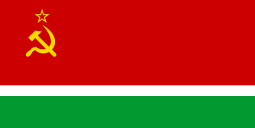


.svg.png)

.svg.png)

.svg.png)

.svg.png)

.svg.png)

.svg.png)













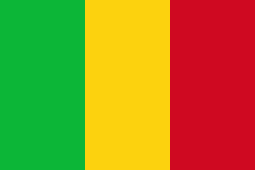
Notable players
FK Žalgiris players who have either appeared for their respective national team at any time or received an individual award while at the club. Players whose name is listed in bold represented their countries while playing for Žalgiris.
Coaches














.svg.png)

.svg.png)

.svg.png)
.svg.png)
.svg.png)
.svg.png)
.svg.png)
.svg.png)














References
- ↑ "Administracija". Fkzalgiris.lt. Vilniaus miesto futbolo draugija "Žalgiris". Retrieved 29 January 2016.
- ↑ http://www.fkzalgiris.lt/naujienos/n7325_zalgirio_komandos_vairas_patyrusiam_specialistui.html
- ↑ Vytautas Saulis ir Gediminas Kalinauskas. „Lietuvos futbolas, 1922-1997 m.: istorinė apybraiža“ // Vilnius, „Diemedis“, 1997. 55 p.
- ↑ Vytautas Saulis ir Gediminas Kalinauskas. „Lietuvos futbolas, 1922-1997 m.: istorinė apybraiža“ // Vilnius, „Diemedis“, 1997. 53 p.
- ↑ "1947 Dynamo (Vilnius) - Lokomotiv (Moscow) - USSR Championship (Group 2)". YouTube. Aleks Chistogan. 21 February 2016. Retrieved 13 June 2017.
- ↑ "Jubiliejinės dvikovos akcentai" (in Lithuanian). FK Žalgiris. 15 May 2017. Retrieved 15 June 2017.
- ↑ "1952 m. Vilniaus „Spartakas" laimėjo SSRS B klasės antro pogrupio varžybas ir pirmą kartą klubo istorijoje iškovojo kelialapį į aukščiausią lygą". Facebook (in Lithuanian). FK Žalgiris. 31 May 2017. Retrieved 13 June 2017.
- ↑ http://www.fkzalgiris.lt/naujienos/n5859_vilniaus_%E2%80%9Ezalgirio%E2%80%9C_istorija_meistru_komanda.html
- ↑ "1981 - 1990". Lithuanian Football Federation. Retrieved 19 January 2016.
- ↑ "LIVE Zalgiris Vilnius - Ludogrets - Champions League". Eurosport. 12 July 2017. Retrieved 20 May 2018.
- ↑ "Žalgiris sign Kappa kit Deal". FK Žalgiris. 30 January 2013. Retrieved 14 July 2016.
- ↑ Suslavičius, Martynas. "Juodame futbolo fone – Vilniaus "Žalgiris" ir Lietuvos svajonė" (in Lithuanian). Lietuvos Rytas. Retrieved 14 July 2016.
- ↑ "Vilniaus "Žalgiriui" - Ukrainos futbolo fanų sveikinimai". DELFI (in Lithuanian). 12 November 2013. Retrieved 30 April 2017.
- ↑ "Привітання литовським друзям з Новим Роком". YouTube.com (in Ukrainian). Ultras Dynamo Kyiv TV. 31 December 2014. Retrieved 30 April 2017.
- ↑ "Garsiausias "Žalgirio" sirgalius: duoti ir gauti į kailį teko tikrai dažniau nei dabartiniams aistruoliams". Alfa.lt (in Lithuanian). 28 November 2013. Retrieved 30 April 2017.
- ↑ "UEFA Team Ranking 2017". kassiesa.home.xs4all.nl.
- ↑ https://alyga.lt/statistika/1
- ↑ "Apie klubą". Retrieved 17 June 2015.
- ↑ "M.Nikoličius: "Atėjo metas ryžtis pokyčiams"". fkzalgiris.lt (in Lithuanian). 17 January 2018. Retrieved 18 January 2018.
- ↑ http://www.fkzalgiris.lt/naujienos/n7325_zalgirio_komandos_vairas_patyrusiam_specialistui.html
External links
- Official website (in Lithuanian) (in English)
